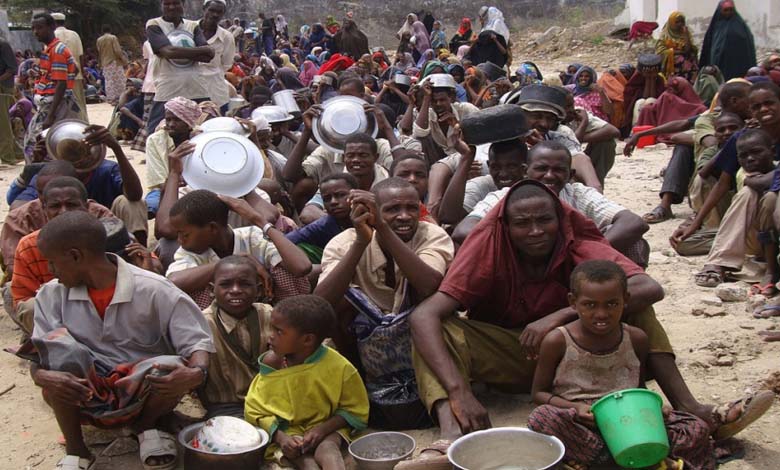Food as a Weapon: How Jihadist Groups Use Famine to Expand Their Power in Africa

The growing food shortage across Africa is fueling tensions and competition over vital resources, particularly in fragile communities, thereby increasing the risk of violence. According to analysts, food is not just a driver or casualty of conflict — it has become a key element in the way jihadist groups fight, govern, and survive.
-
Breach of Fortified Cities and Strategic Attacks: Terrorism Unsettles the African Sahel
-
Arming Dynamics of Extremist Groups in the African Sahel: What Is the Source of Their Arsenal?
As reported by the London-based Al-Arab newspaper, terrorists have used food as a strategic tool to challenge national authorities and recruit new followers. Simultaneously, they exploit food insecurity to gain control over communities and confront anti-terrorism forces, often forcing the state to withdraw from contested regions.
This dynamic has serious humanitarian consequences: the weaponization of food exacerbates human suffering, leads to mass displacement in already fragile environments, and activates dangerous mechanisms of instability, which may ultimately undermine the militants themselves by reducing their operational resources.
-
The African Sahel: The deadliest hotspot of violence on the continent for the fourth consecutive year
-
West Africa Could Soon Witness the Emergence of a Jihadist State… What Are the Factors Behind It?
Weaponizing Hunger: Boko Haram and Al-Shabaab Tactics
Since the late 2000s, Boko Haram in Nigeria and Al-Shabaab in Somalia have engaged in violent confrontations with African security forces. Both groups seek to overthrow local governments and solidify their control over territories, especially in regions suffering from deteriorating food security, such as Nigeria’s Borno State and southern Somalia — areas long marked by friction between local communities and the state.
These populations often suffer from socioeconomic marginalization, lack of basic services, and high unemployment. Boko Haram and Al-Shabaab have exploited these inequalities to gain local support, positioning themselves as alternatives to the state in providing essential goods.
-
Armed groups deliberately kidnap Europeans in the African Sahel: What are their motives?
-
Rising Terrorist Activities in the African Sahel… “Global Report”
Reports suggest that Boko Haram distributed items such as biscuits, rice, and pasta to marginalized villages. As one Borno resident noted, the militants showed “love and concern” in addressing local needs. Similarly, Al-Shabaab offered food aid and consumer goods, while encouraging local farming activities, in an effort to win hearts and minds and expand its recruitment base.
Coercive Strategy: Starvation as Punishment
Alongside these outreach efforts, both groups have adopted harsh punitive measures, including the use of food deprivation to punish civilians for defiance or collaboration with the government.
-
Mauritania Warns: The “African Sahel” Region among the World’s Most Severe Crisis Hotspots
-
Rise in Al-Qaeda activities in the African Sahel… What factors led to this?
Boko Haram systematically targeted food infrastructure — burning crops, banning farming and fishing, and even poisoning water sources. During the Somali famine of 2011–2012, Al-Shabaab disrupted humanitarian operations to prevent the distribution of food aid, aiming to limit Western influence in its territories.
These strategies have significantly worsened food insecurity in already vulnerable areas. Over the past 15 years, such actions have led to severe disruptions in supply chains, declines in local food production, and economic collapse, triggering waves of displacement and deepening the humanitarian crisis.
-
Jihadist groups intensify attacks on civilians in Burkina Faso… Details
-
The Growing Jihadist Violence in the Sahel
The Backlash: An Unintended Consequence
While these tactics allowed Boko Haram and Al-Shabaab to gain influence in the short term, they have also undermined their own survival. By destroying local resources, these groups have reduced their access to food, weakened their economic base, and diminished their recruitment capacity.
In this sense, using hunger as a weapon is backfiring, slowly eroding the foundations of militant control in increasingly unstable environments.












